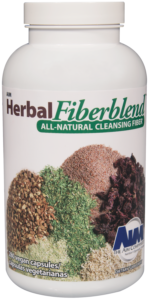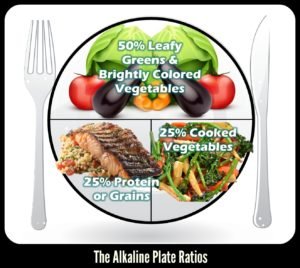Digging Deeper Into Parkinson’s Disease
Digging Deeper Into Parkinson’s Disease
The following are articles I found helpful as I was looking for 6 Lifestyle Choices to Reduce Risk of Parkinson’s Disease. Each section also contains products we use and recommend.
What is Parkinson’s Disease
“Parkinson’s disease is a neurodegenerative disease whereby cells responsible for producing dopamine die off in the substantia nigra area of the brain. Dopamine is essential for movement as it acts as a transmitter for signals from the brain to other parts of the body”. https://Parkinson’snewstoday.com/2017/04/13/eleven-facts-about-Parkinson’s-disease/
Here are some great ideas on how to naturally increase dopamine levels in your brain.
http://helloendless.com/10-ways-to-increase-dopamine-to-boost-your-productivity/
This is an interesting website with info on MCT oil and other natural health remedies by a scientist who is improving parkinson’s symptoms.
http://www.outthinkingparkinsons.com/about/
AGE is #1 Factor
Parkinson’s is the second most common age-related neurodegenerative disorder after Alzheimer’s disease. An estimated seven million to 10 million people worldwide have Parkinson’s disease.
The prevalence of the disease ranges from 41 people per 100,000 in the fourth decade of life to more than 1,900 people per 100,000 among those 80 and older.
Stress Resolution
Our Be Nourished 4 Life students who focus on resolving nutritional stress by eating nutrient dense foods report a reduction in emotional/spiritual and physical stress by 50%-75% in 3-4 weeks.
“Giving your body the nutrition it needs is a positive step you can take every day toward combating stress. With the correct nutrition, you are better prepared to face the challenges of the day.” https://psychcentral.com/lib/beating-stress-through-nutrition/
“Frequently patients describe stressful events that seemed to be associated with the initial onset of their PD symptoms. For example, many noted a tremor that appeared or was noticed following a major operation, a head injury or the diagnosis of another condition, such as thyroid disease. In other instances, symptoms were noted after a particularly stressful event, such as the death of a spouse or other family member.”
http://www.thepi.org/clientuploads/Clinic/Resources/Anxiety.pdf
Anxiety & Depression
Anxiety is another frequent symptom of PD and often goes hand-in-hand with stress. Anxiety or even panic attacks, often accompanied by depression, may occur because of changes in serotonin and norepinephrine in PD. Family members will say things like “She worries about everything!”
http://www.thepi.org/clientuploads/Clinic/Resources/Anxiety.pdf
People with depression were found to be 50% more likely to develop Parkinson’s Disease
“We saw this link between depression and Parkinson’s disease during over a timespan of more than two decades, so depression may be a very early symptom of Parkinson’s disease or a risk factor for the disease,” said study author Peter Nordström, PhD, at Umeå University in Umeå, Sweden…The link between depression and Parkinson’s disease did not change when researchers adjusted for other conditions related to depression, such as traumatic brain injury, stroke and alcohol and drug abuse. American Academy of Neurology. https://www.aan.com/PressRoom/Home/PressRelease/1385
Physical Exercise as stress resolution
The Parkinson’s Outcomes Project shows that people with PD who start exercising earlier and a minimum of 2.5 hours a week, experience a slowed decline in quality of life compared to those who start later. Establishing early exercise habits is essential to overall disease management.
http://www.parkinson.org/Understanding-Parkinsons/Treatment/Exercise
Resolve Constipation
This is a big one because it affects neurotransmitter development (remembering that dopamine is a neurotransmitter and is deficient in Parkinson’s patients) and nutrient abosorption and removal of toxins – all of which impact overall brain function.
The human colon has a new lining every 3 days

One of the best ways we’ve found to heal the gut and resolve constipation is a product called Herbal Fiber Blend combined with AIM Fit & Fiber. These two products contain herbs to provide an environment for the entire digestive tract to heal. Mixed together these two products provide over half the daily recommended amount of fiber.
More about AIM Herbal Fiberblend
Great Tasting AIM Fit & Fiber, gentle and effective

“Most people don’t get enough fiber in their diets. The AIM Companies designed orchard peach fit ‘n fiber as a tasty alternate to conventional, store-bought fiber supplements. It mixes well with other AIM products, providing extra bulk and flavor to AIM smoothies, Herbal Fiberblend and AIM protein shakes.”
The researcher I spoke with said the gut-brain connectin is the main focus of current study. Parkinson’s disease develops because of a form of plaque, or sticky protein, in the parts of the brain that control movement. Recent research finds the same plaque in the gut. The question this researcher was trying to answer; is the plaque in the gut a precursor to the plaque in the brain and how early can we catch it in the gut?
Here’s what Michael J Fox Foundation for Parkinson’s Research says
Thousands of bacteria live in the gut, and they help digest food, make vitamins and support immune function. Gut cells are connected to the brain through certain nerves and via this link, researchers believe changes in the gut could potentially effect changes in the brain. In fact, alpha-synuclein, the sticky protein that clumps in the brains of those with PD, also is present in the gut of people with PD. And, one of the earliest symptoms to emerge in many people with Parkinson’s is constipation. A greater understanding of gut bacterial changes may shed light on new ways to diagnose Parkinson’s and manage symptoms throughout the course of disease. https://www.michaeljfox.org/foundation/news-detail.php?new-information-on-the-parkinson-gut-connection
Scholarly articles if you would like to do more reading
The American Academy of Neurology: Parkinson’s disease may start in the gut and spread to the brain via the vagus nerve, according to a study. The vagus nerve extends from the brainstem to the abdomen and controls unconscious body processes like heart rate and food digestion.
Parkinson’s Disease, a dual-hit hypothesis
http://onlinelibrary.wiley.com/doi/10.1111/j.1365-2990.2007.00874.x/full
Interesting site by a phd Scientist who is recovering from Parkinson’s using many natural methods
MCT Oil
http://www.outthinkingparkinsons.com/articles/coconut
Food
http://www.outthinkingparkinsons.com/articles/diet-and-nutrition
Supplement Bowel Flora
“Probiotics are the good bacteria that live in our intestines and play a tremendous role in regulating our immune function. Yogurt and kefir (pronounced ‘kee-fer’) are fermented dairy products and can be an excellent source of probiotics. In fact, a dairy-based probiotic supplement was recently shown to do a great job improving the bowel health of individuals with PD.8 And as I already mentioned, two large, well-designed studies (Honolulu Aging Study and the EPIC-Greece cohort) did show a link between milk and PD, although consuming yogurt did NOT increase the risk of PD.” https://nwpf.org/stay-informed/blog/2014/04/dairty-gut-health-in-pd/

A high quality Probiotic Supplement
AIM Flora Food uniquely contains the beneficial bacteria found in the human gut and is a repopulating form of probiotic, meaning it reproduces in the gut. Our students report improved digestion, bowel and immune function using AIM Flora Food.
Dietary Fiber produces important short-chain fatty acids
Short chain fatty acids are the “waste product” of beneficial bacteria feasting on plant based fiber in your gut! Sounds yummy…lol.
Pacific Neuroscience Institute reports on the Gut-Brain connection in Parkinson’s Disease. “There are a few theories, one of which involves short-chain fatty acids (SCFA), which are made by bacteria in the gut by breaking down dietary fiber, notably Lachnospiraceae”.
Fermented Foods, Gut bacteria and Neurologic disorders
From the National Institute of Health
“Dietary patterns also modify microbiome composition and function, in complex ways that vary among individuals and cultures and are the subject of intense ongoing research. Prebiotics, probiotics, and fermented foods such as yogurt may influence the impact of the gut microbiome on the CNS and have shown significant effects on brain function in a number of experimental trials and clinical studies. Along with diet, these functional food components may offer future opportunities for altering the microbiome to enhance cognitive or emotive function and prevent or treat neurologic disorders.”
Inflammation
Chronic inflammation is a major characteristic feature of Parkinson’s disease (PD
https://www.ncbi.nlm.nih.gov/pmc/articles/PMC4382972/
Eating an anti-inflammatory diet is the best way to reduce inflammation. The Alklaine Plate and Be Nourished 4 Life program teach you how to choose, prepare and enjoy an anti-inflammatory diet.

Nutrition
National Institute of Health, NCBI
The health benefits associated with the intake of phytochemicals present in fruits and vegetables leads to decreased functional decline associated with aging and may slow the progression of PD (Liu, 2003).
Epidemiological studies found that high intake of fruits, vegetables and fish was inversely associated with PD risk (Gao et al., 2007; Okubo et al., 2012). Dietary patterns, characteristic of a Mediterranean diet, are emerging as a potential neuroprotective alternative for PD (Alcalay et al., 2012). https://www.ncbi.nlm.nih.gov/pmc/articles/PMC3945400/
Milk = bad/Milk Kefir = beneficial
Note that this article in the National Institue for Health archives found that MILK itself was a cause of neurodegeneration (bad), however KEFIR, which is a fermented milk product is considered beneficial for it’s millions of beneficial bacteria and they specifically listed the kefir containing the most beneficial bacteria for Parkinsons Disease originating from cows milk. I recommend using an organic, grass fed milk product.
Our Be Nourished 4 Life Intermittent Fast Boost provides a tutorial, How to Make Kefir and Kefir Cheese.

This great graphic from https://www.ncbi.nlm.nih.gov/pmc/articles/PMC3945400/figure/F1/
Omega 3 & DHA
Omega-3 polyunsaturated fatty acids (PUFAs) appear to be neuroprotective for several neurodegenerative diseases (Bousquet et al., 2011a). There have been no studies in PD patients that address whether omega-3s are neuroprotective, however, one study showed that supplementation with omega-3 PUFA reduced depression in PD patients (Da Silva et al., 2008). Current research focuses specifically on the omega-3 fatty acid docosahexaenoic acid (DHA). DHA is an essential factor in brain growth and development (Horrocks and Yeo, 1999) and has anti-inflammatory potential
Toxicity
Lewy Bodies. Once thought to cause Parkinson’s, new research capability through high powered microscopes now reveal the Lewy Bodies form to protect the brain cells from toxicity. https://Parkinson’snewstoday.com/2016/03/16/lewy-bodys-might-protect-neurons-from-soluble-alpha-synuclein-toxicity/
Eliminate toxins through an Intermittent Fast Boost
Our Be Nourished 4 Life Intermittent Fast Boost is a simple and fast way to eliminate toxins from the body.
Ready to Reduce your Risk of Parkinson’s Disease? Check out 6 Lifestyle Choices.
Great blog on using food and natural health measures to reverse Parkinson’s, a scientist’s experiment on himself.….www.outhinkingparkinsons.com